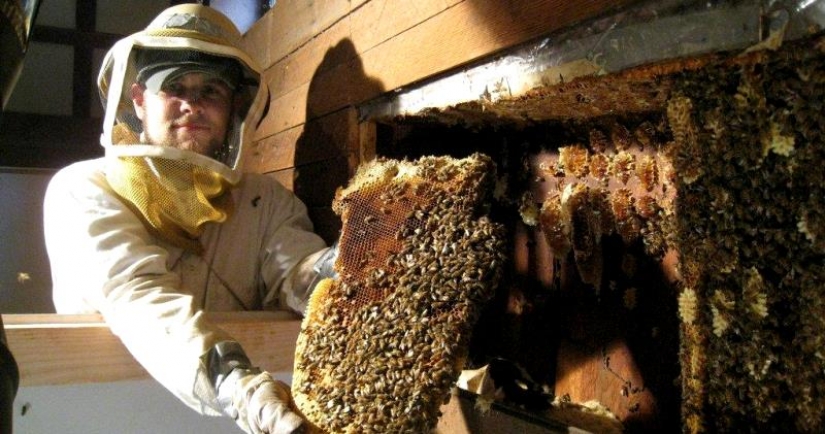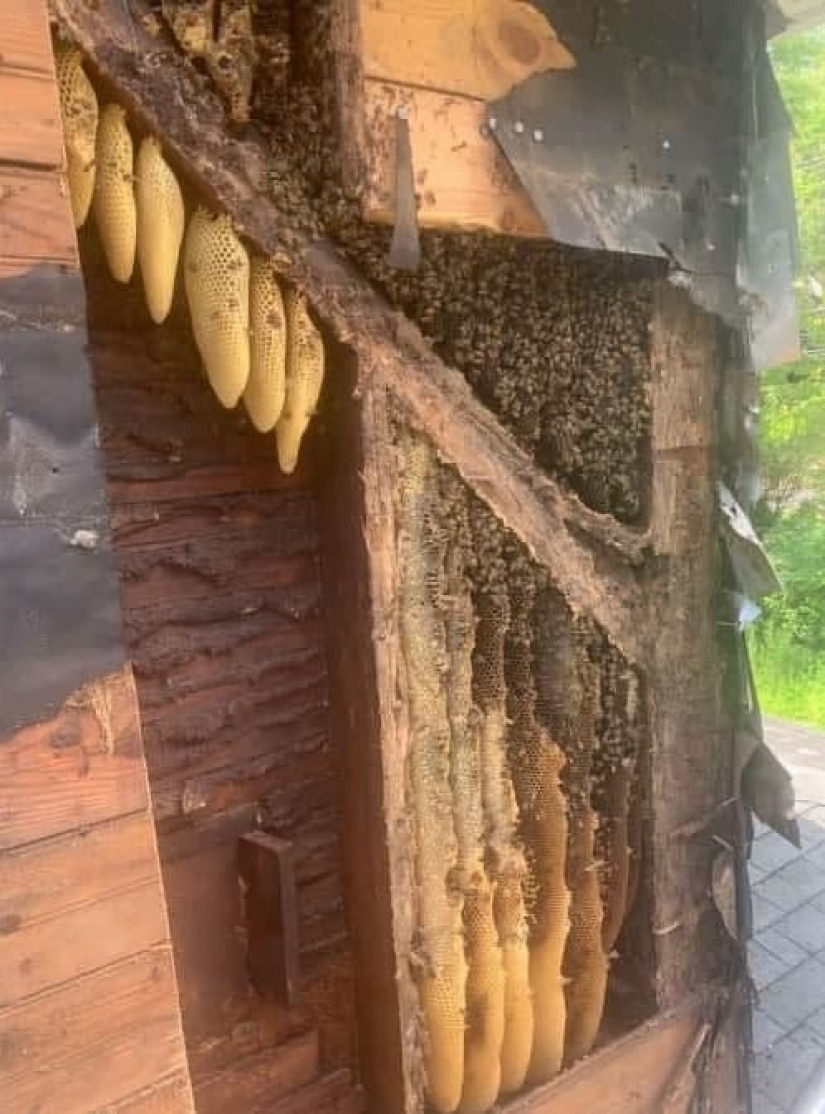A couple from the USA bought a house in the village, and it turned out to be a giant beehive
Categories: Animals | Design and Architecture | North America
By Pictolic https://pictolic.com/article/a-couple-from-the-usa-bought-a-house-in-the-village-and-it-turned-out-to-be-a-giant-beehive.htmlIt often happens that property owners are slightly lying when selling, downplaying the problem so as not to scare off buyers. So the American Sarah Weaver, who bought a small farm in the town of Skippack in Pennsylvania, could not imagine what the hostess meant when she spoke about"bees in the house".

When the deal was completed, Sarah and her husband realized that along with the house in the village, they also bought almost half a million bees, which many years ago occupied an abandoned building built in 1872. The Weavers were told that the house had not been repaired for 35 years, and the buyers were ready to expel a couple of dozen bees from its walls and invest in the decoration.

The house was bought in the winter, when the bees were fast asleep and the new owners simply did not see them. Sarah and her husband were happy that they managed to buy an old, but still quite strong two-story mansion in a picturesque area, and even with a plot of land. When Sarah was washing the windows and walls of the building, she noticed a strange sticky coating on the walls and windows. Only then did the woman realize that these were streaks of real honey.
This seems implausible, but it is quite possible when for many years all the free cavities between the building structures and the cladding and walls were inhabited by honey bees. The joy of Sarah and her husband from buying real estate was overshadowed in the spring, when the insects came out of hibernation and found uninvited guests in their home.

Needless to say, organized and painfully stinging insects easily expelled the owners of the house to the street. In an interview with CNN reporters, Sarah said:
The Weavers could not even imagine how costly the fight against bees could become. They had to hire an insect specialist who undertook to evict the bees from their home for 12 thousand dollars (875 thousand rubles). The owner of the company that performed the work, Allen Lattanzi, claims that three large swarms of honey bees found shelter in the house and their number reached 450 thousand individuals.

Lattanzi told clients that the former hostess had already called him because of the bees, but when she saw the estimate for the work, she thought it was too expensive. Most likely, it was because of the insects that she decided to sell the property that she had owned for many years. The specialist had to deal with the bees for a whole week, but in the end he won over them.
We must pay tribute to the expert on bees, the expulsion of insects occurred with minimal damage to them. These useful insects are already under threat and may completely disappear in the coming decades. Lattanzi managed to relocate all three colonies of bees to hives specially prepared for them, and now the Weavers have also received their own apiary, which, however, cost them too much.
Keywords: USA | Animals | North America | Real estate | Pennsylvania | Farm | Design and architecture | Bees | Honey | News of the day
Post News ArticleRecent articles

It's high time to admit that this whole hipster idea has gone too far. The concept has become so popular that even restaurants have ...

There is a perception that people only use 10% of their brain potential. But the heroes of our review, apparently, found a way to ...
Related articles

This project full of sexual desire and diverse energy dynamics. Look at women through the eyes of a woman, talented photographer ...

In the fall of 1972, Bill Yates traveled through the countryside in the vicinity of Tampa, Florida. At that time, he was studying ...

These artists love cats, but also masterfully draw them, often complementing funny and life signatures. Meet! --> Russian ...

New Year's is a time to surprise and delight loved ones not only with gifts but also with a unique presentation of the holiday ...